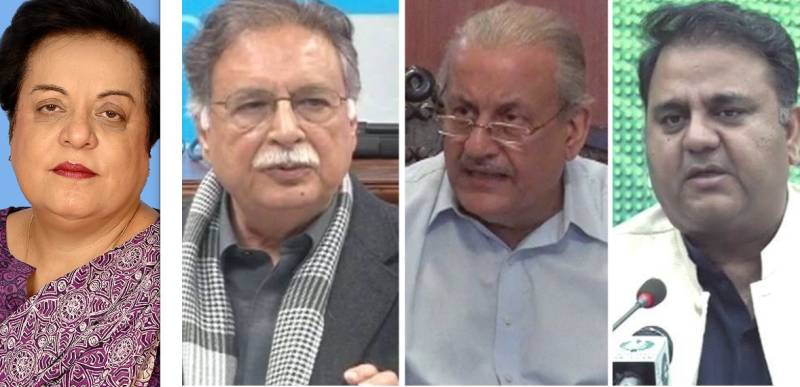PML-N, PPP, PTI leaders express ‘surprise’ over PM’s decision about ISI

Stay tuned with 24 News HD Android App

Senior leaders of the coalition government and the opposition have expressed a ‘surprise’ over Prime Minister Shehbaz Sharif’s decision to give a special vetting agency (SVA) status to Inter-Services Intelligence (ISI) a day ago.
According to the 24News HD TV channel, the Pakistan People’s Party (PPP) leader and former chairman Senate Raza Rabbani criticized the PM’s decision by declaring it a ‘surprising’ act.
PPP leader Raza Rabbani said giving the right to scrutinize promotions and appointments of government officers to ISI is very surprising for him.
He said a comprehensive law for the vetting of civil servants was already present so no more process of screening them is needed from the ISI.
He said the civil servants are already working under pressure due to the NAB law and the courts have also overlooked agency reports in their decision.
The ruling Pakistan Muslim League Nawaz (PML-N) central leader and one of the prominent think tanks Senator Pervaiz Rasheed has said in a tweet that if the limits of ISI have been expanded then the institution should also be accountable to the parliament.
اگر سویلین افسروں کی چھان بین کا فریضہ آئ ایس آئ کی ذمہ داریوں میں شامل کیا جاتا ہے تو پھر آئ آیس آئ کو بھی سویلین انتظامیہ کے زیر سپرد بھی ہونا چاہیے اور پارلیمنٹ کو جوابدہ بھی۔
— Pervaiz Rashid (@SenPervaizRd) June 4, 2022
While the opposition party, Pakistan Tehreek-e-Insaf (PTI) leader Fawad Chaudhry also expressed his consensus with the ruling PML-N’s Pervaiz Rasheed in a responding tweet and emphasized if ISI’s ambit is expanded then it should be accountable to the parliament.
پرویز رشید درست کہ رہے ہیں اگر اداروں نے اپنا کردار اوربڑھانا ہے تو پھر اسکی قیمت آپ کو عوامی احتساب کی صورت میں چکانی پڑے گی،ادارے نے سوچنا ہے اس نے پاکستان کی سیاست میں اپنا کیا کرداررکھنا ہے؟میڈیا انقلاب کے بعد پاکستان میں سیاسی اداروں اور اداروں کے نئے کردار پربحث کی ضرورت ہے https://t.co/uXw0BgXz64
— Ch Fawad Hussain (@fawadchaudhry) June 4, 2022
Endorsing the statement of Fawad Chaudhry, the PTI leader Sheri Mazari has said in her tweet, “Absolutely correct. This debate is critical for the future of democracy in Pakistan.”
Absolutely correct. This debate is critical for the future of democracy in Pakistan. https://t.co/VY6Z9TcFWt
— Shireen Mazari (@ShireenMazari1) June 4, 2022
Human Rights Commission Pakistan (HRCP) has also expressed its deep concern on the PM’s decision and said in a tweet that the HRCP is deeply concerned by PM Shehbaz's decision to task the ISI officially with screening civil servants before inductions, appointments and postings. The role of the military in civilian affairs needs to recede if Pakistan is to move forward as a democracy.
HRCP is deeply concerned by PM @CMShehbaz's decision to task the ISI officially with screening civil servants before inductions, appointments and postings. The role of the military in civilian affairs needs to recede if Pakistan is to move forward as a democracy. pic.twitter.com/0GObQXhpJr
— Human Rights Commission of Pakistan (@HRCP87) June 4, 2022
